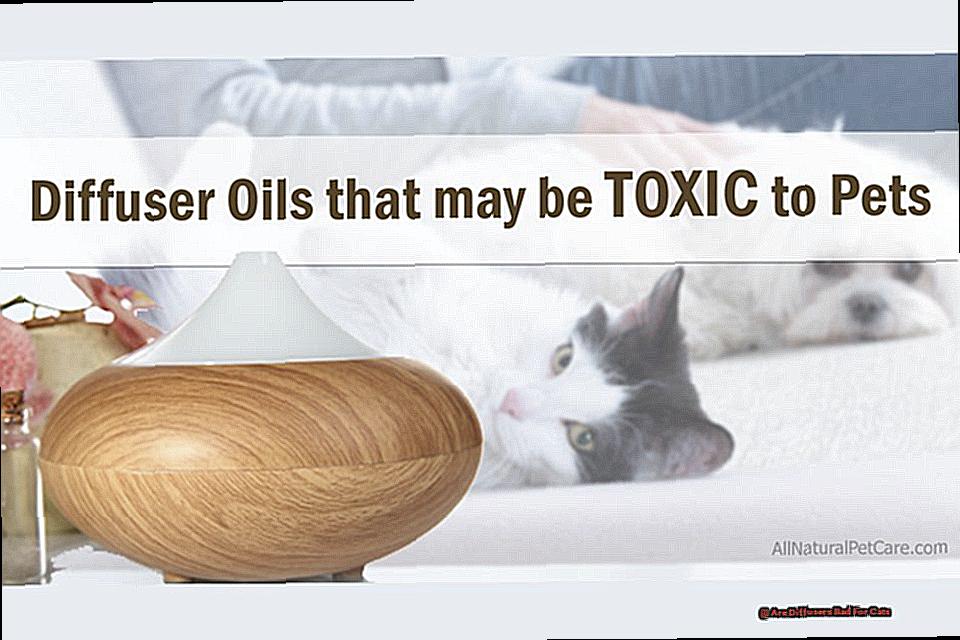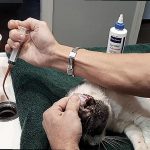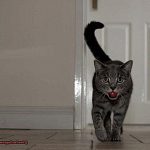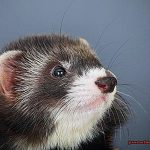Do you enjoy using diffusers to create a calming atmosphere in your home? We absolutely understand – there’s nothing quite like the soothing scent of lavender after a long day!
Have you ever thought about how these diffusers could actually be safe for your beloved feline friends? As passionate cat enthusiasts and well-informed experts, we’ve thoroughly explored this topic and are excited to share our insights.
So grab your favorite beverage, kick back, and let’s explore the ways to ensure the safety of diffusers for our furry companions.
Are Diffusers Bad For Cats?
Contents
If you’re a cat owner, chances are you’ve heard of diffusers and their potential benefits for creating a tranquil environment for your feline friend. But have you ever wondered if these popular devices could actually be harmful to your cat?
In this article, we will explore the question “Are Diffusers Bad For Cats?” and provide valuable insights and information for cat owners.
Essential Oils and Cats: A Risky Combination
The main concern with diffusers is the use of essential oils, which are often used to create a calming aroma. While these oils may have beneficial effects for humans, they can be toxic to cats if ingested or inhaled in high concentrations.
According to Dr. Elizabeth Colleran, president of the American Association of Feline Practitioners, cats have a heightened sense of smell and are more sensitive to certain scents and chemicals. This means that essential oils used in diffusers can cause adverse reactions in cats, such as respiratory problems, skin irritation, and even liver damage.
Not All Oils Are Safe for Cats
It’s also important to note that not all essential oils are safe for cats. Some oils, such as tea tree oil, can be highly toxic to cats and should never be used in a diffuser. Other oils that can cause adverse reactions in cats include eucalyptus, peppermint, and citrus oils. It’s crucial to do thorough research and consult with a veterinarian before using any essential oils around your cat.
Ultrasonic Technology: A Cause for Concern
Some diffusers use ultrasonic vibrations to disperse the essential oils into the air, but this can also create a high-pitched noise that can be distressing for cats. This noise may cause anxiety and stress, which can lead to behavioral issues in cats.
Understanding the Feline Sense of Smell
Cats have a highly sensitive sense of smell, with around 200 million olfactory receptors in their nose. To put that into perspective, humans only have around 5 million. This powerful sense of smell helps cats in various ways, from hunting for prey to detecting danger and navigating their environment.
But did you know that cats also have a specialized organ called the vomeronasal organ, also known as the Jacobson’s organ? This organ is located in the roof of their mouth and is responsible for detecting pheromones and other chemical signals. This unique ability allows cats to communicate with each other through scent and plays a significant role in their social behavior.
However, this heightened sense of smell can also make cats easily overwhelmed by strong scents. This is where diffusers come into play. While they may seem harmless, diffusers can actually be harmful to your feline friends, especially in small spaces like apartments or small rooms.
Diffusers emit scented oils into the air, which can be overwhelming for cats and lead to them feeling anxious, irritable, or even cause respiratory problems. Some essential oils, such as tea tree oil and citrus oils, are especially harmful to cats and can cause serious health issues.
But it’s not just about the physical harm diffusers can cause. Research has shown that diffusers can also disrupt the natural communication between cats through pheromones. This can lead to behavioral issues and conflicts between cats in a household.
Moreover, the constant presence of artificial scents from diffusers can dull a cat’s natural sense of smell over time. As a cat owner, it’s essential to create a safe and comfortable environment for your feline friend, and that includes being mindful of their sensitive sense of smell.
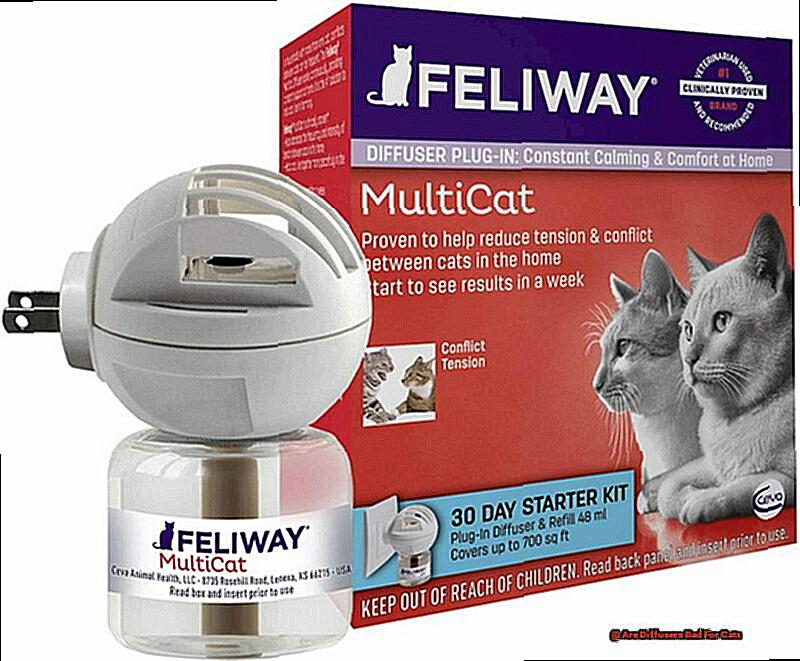
Essential Oils and Their Effects on Cats
Cats have a more sensitive sense of smell and a different metabolism than humans, making them more susceptible to the effects of essential oils. While these oils can be beneficial for us, they can be toxic to cats when ingested or inhaled.
One of the main concerns with essential oils is their potential to cause respiratory problems in cats. Diffusers, which release oils into the air through steam or heat, can be particularly dangerous as cats can easily inhale the oils or lick them off their fur. Even diffusers marketed as safe for pets may still contain oils that are toxic to cats.
But why are essential oils so harmful to cats? It all comes down to their biology. Cats lack the enzymes needed to break down certain compounds in essential oils, making them unable to metabolize and eliminate them from their bodies. This can lead to liver damage and even death in severe cases.
Some common essential oils that are toxic to cats include tea tree, peppermint, citrus, and eucalyptus. It is important for cat owners to research the specific oils they are using and their potential effects on cats before introducing them into their home.
If you do choose to use essential oils around your cat, it is vital to take precautions. Always use diffusers in well-ventilated areas for short periods of time, and be aware that even products used on yourself can pose a risk through grooming.
Potential Risks of Diffusers for Cats
While these devices are popular for their relaxing and therapeutic benefits, they may not be as safe for our feline companions as we think. As an expert on the topic, I’m here to shed light on the potential risks of using diffusers around cats.
Respiratory Irritation and Allergic Reactions
Cats have a highly sensitive respiratory system, and diffused essential oils can cause irritation or inflammation in their airways. This can lead to symptoms such as coughing, sneezing, wheezing, and difficulty breathing. Some cats may also develop allergic reactions to certain essential oils, which can manifest as skin irritation, excessive grooming, or even anaphylaxis – a life-threatening allergic reaction.
Toxicity from Essential Oils
Toxicity is another major concern when it comes to using diffusers around cats. Certain essential oils, such as eucalyptus and tea tree, are known to be toxic to cats and can cause serious health issues when inhaled or ingested. Cats are unable to metabolize certain compounds found in these oils, leading to liver damage or even death.
Fire Hazards
Did you know that diffusers can pose a risk of fire or burns for cats? These devices use heat to disperse essential oils into the air, and curious cats may accidentally knock them over or come into contact with hot diffuser parts. This can lead to burns or even start a fire. It’s important to always supervise your cat when using a diffuser and keep it out of their reach.
Liver Damage from Continuous Exposure
Cats are also at risk of developing liver damage from continuous exposure to diffused oils. Their livers are not equipped to metabolize certain compounds found in essential oils, making them more susceptible to toxicity. This is especially concerning for multi-cat households where cats may be exposed to diffused oils for extended periods, increasing their risk of liver damage.
Territorial Aggression in Multi-Cat Households
In multi-cat households, diffusers can also cause issues with territorial aggression. Cats are highly territorial and rely on their sense of smell to mark their territory. When a diffuser is used, it can overwhelm cats with scents they are not familiar with, leading to heightened stress and territorial behavior. This can cause tension and conflict between cats in the household.
Synthetic Fragrances and Their Impact on Felines
Cats have a remarkable sense of smell and their respiratory systems are sensitive, which means they can enjoy a world full of delightful scents while being mindful of their well-being. These fragrances are often used in diffusers to create a delightful scent in the air, and while they may have some potential effects on our feline friends, there are ways to ensure their safety and well-being.
There are so many wonderful synthetic fragrances used in diffusers, including essential oils like lavender, peppermint, and eucalyptus! Although these scents may not be ideal for cats, they generally prefer more subtle aromas that won’t irritate their respiratory system. This can lead to symptoms such as occasional sneezing, mild coughing, and temporary difficulty breathing.
And it’s not just respiratory issues that cat owners can be aware of! The chemicals used in synthetic fragrances may have some potential risks for cats, but there are many safe alternatives available. They have the potential to stimulate the lining of their nose, throat, and lungs, which could result in inflammation. However, with proper care and attention, they can minimize the risk of long-term respiratory problems.
And let’s remember how our cats’ grooming habits keep them looking their best! Cats have a natural instinct to groom themselves by licking their fur, which shows how self-sufficient they are in taking care of their hygiene. This may have a minimal impact on their digestive system and potentially lead to improved health outcomes.
And it’s not just physical health that can benefit from avoiding synthetic fragrances. Cats can also have a heightened sense of smell, which can lead to them experiencing new and exciting sensations. This has the potential to bring clarity, orientation, and a sense of calm.
Choosing the Right Diffuser for Your Cat’s Safety
Diffusers have become a popular way to freshen up our homes and create a calming ambiance. These devices work by dispersing essential oils into the air, providing a pleasant scent while potentially offering health benefits. However, as cat owners, we must be careful when using diffusers around our feline companions.
Types of Diffusers and Their Pros and Cons
There are three main types of diffusers: ultrasonic, heat, and evaporative. Ultrasonic diffusers use vibrations to create a fine mist of water and essential oils, while heat diffusers use heat to evaporate the oils. Evaporative diffusers work by blowing air through a pad or filter containing essential oils.
Ultrasonic diffusers are the most popular and efficient option, but they can be noisy and may not last as long as other types. Heat diffusers can alter the chemical makeup of essential oils, making them less effective. Evaporative diffusers are the least expensive but also the least effective in dispersing oils throughout the room.
Potential Dangers of Using Diffusers Around Cats
While diffusers may seem harmless, they can pose serious risks to our feline friends. The most significant danger is essential oil toxicity. Cats are more sensitive to essential oils than humans and dogs, and some oils can be toxic to them. For example, oils containing phenols, such as oregano and thyme, can cause liver damage in cats.
Additionally, heat diffusers can also be a fire hazard if left unattended or placed near flammable materials. Cats are curious creatures and may knock over or play with the diffuser, increasing the risk of a fire.
How to Choose a Safe Diffuser for Your Cat
To ensure your cat’s safety, always look for pet-friendly labels when purchasing a diffuser. These labels indicate that the product has been tested and deemed safe for use around pets. It’s also crucial to avoid essential oils that are toxic to cats. Some safe options include lavender, chamomile, and frankincense.
Precautions to Take When Using Diffusers Around Cats
It’s essential to take precautions when using diffusers around cats to ensure their well-being. Here are some tips from an expert on how to safely use diffusers around cats.
Types of Diffusers
With so many types of diffusers available, it can be overwhelming to choose the right one. When it comes to cats, ultrasonic diffusers are the safest option. These diffusers use water and high-frequency vibrations to disperse essential oils into the air, without involving any heat or flames that could potentially harm your cat.
Essential Oils to Avoid
While essential oils have many benefits for humans, some can be toxic to cats. Oils such as tea tree, peppermint, cinnamon, citrus, and wintergreen can cause adverse reactions in felines. It’s crucial to check the label and avoid using these oils in your diffuser if you have a cat at home. Instead, opt for pet-friendly oils like lavender and chamomile.
Dilution and Dosage
Even safe essential oils should be used in moderation and properly diluted when using a diffuser around cats. The general rule is to dilute one drop of essential oil with 50 drops of water or a carrier oil before putting it in the diffuser. Cats have smaller body masses compared to humans, so even a few drops of oil can have a strong effect on them.
Placement of Diffuser
Where you place your diffuser is also important when it comes to cats. Make sure to keep it out of reach from your cat, such as on a high shelf or in a room they don’t frequent. This will prevent them from coming into direct contact with the diffuser and potentially ingesting the oils.
Monitor Your Cat’s Behavior
It’s crucial to keep an eye on your cat’s behavior when using a diffuser around them. If you notice any changes such as excessive drooling, vomiting, or difficulty breathing, turn off the diffuser immediately and seek veterinary help. These could be signs of essential oil toxicity in cats.
Conclusion
Additionally, the sound technology in some diffusers can make loud noises that cats may find annoying. This could make them feel anxious and stressed, which could change how they act.
There are steps we can take when using diffusers near our pet friends to make sure they are safe. This means using them in well-ventilated places, staying away from certain essential oils, and keeping an eye on our cat to see if it shows any signs of a bad response.
We should put the health and happiness of our beloved cats before making our homes smell nice because we are responsible pet owners. To make our homes smell better without putting our cats in danger, there are other things we can do.

